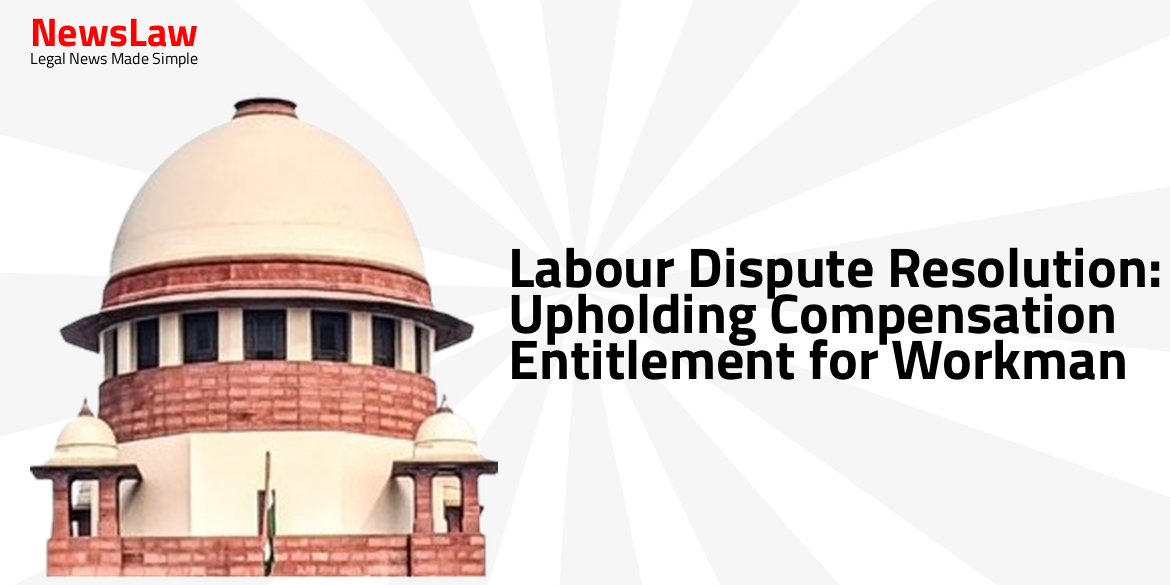In the case of Promotion Policy, the petitioners raised concerns regarding the promotion process for District Judges, challenging the High Court’s selection list. The respondents, judicial officers who were promoted based on seniority, faced scrutiny over the application of the ‘Merit-cum-Seniority’ principle. The Supreme Court’s decision on this case sets a significant precedent for future promotions in the judicial service, emphasizing the balance between merit and seniority.
Facts
- Promotion to the cadre of District Judge (65%) is based on the principle of merit-cum-seniority and passing a suitability test.
- The final Select List dated 10.03.2023 was found to be in contravention of the principle of ‘Merit-cum-Seniority’ as per the rules and previous court decisions.
- Out of the 149 eligible candidates, the seniormost 68 were given promotion to the post of District Judge based on evaluation criteria including ACRs, judgments, and disposal rates.
- A total of 149 judicial officers were found eligible for promotion as they secured a minimum 40% marks in each evaluation component and a minimum aggregate of 50% marks overall in the suitability test.
- Out of 205 candidates, 175 judicial officers cleared the Written Test (Objective Type – MCQs) by securing a minimum of 40% marks.
Also Read: State of India vs. Anees : Upholding the Conviction for Murder
Issue
- The court is considering the scope of the principle of ‘Merit-cum-Seniority’ in service jurisprudence.
- The key question is whether the promotion of Civil Judges (Senior Division) to the cadre of District Judges as per the relevant rules and recruitment notice is in line with the ‘Merit-cum-Seniority’ principle.
- The court addresses the preliminary objection on the maintainability of the writ petition under Article 32, noting that even when an alternative remedy exists under Article 226, the court has the discretion to entertain the petition under Article 32.
Also Read: Judgment on Quashing of FIR No. 95 of 2021 – Tanu Gupta v. Achin Gupta
Arguments
- Mr. Patwalia argued that in promotions based on ‘Merit-cum-Seniority’, seniority should only be a deciding factor if merit is equal among candidates.
- He emphasized that ‘Merit-cum-Seniority’ is a specific concept in service jurisprudence and not a vague term.
- Mr. Basant pointed out that the High Court’s promotion process seemed to favor ‘Seniority-cum-Merit’ over ‘Merit-cum-Seniority’ due to the repeated emphasis on seniority in the final selection list.
- He referenced court cases to support the distinction between ‘Merit-cum-Seniority’ and ‘Seniority-cum-Merit’.
- Mr. Giri argued that ‘Merit-cum-Seniority’ should not disregard seniority completely and that there must be a balance between merit and seniority in promotions.
- He highlighted that deviating from the High Court’s promotion process would lead to unfair outcomes for candidates who had previously missed out on promotions due to juniority.
- Mr. Dave contended that scoring slightly higher marks does not necessarily indicate superior merit, and disregarding seniority entirely would be unjust to promoted candidates.
- Ms. Raghuvanshi argued that ‘Merit-cum-Seniority’ should consider practical experience and qualities beyond exam marks, especially in the context of judicial services promotions.
Also Read: Fertilizer Corp. of India Ltd. v. M/s Hindustan Polymers
Analysis
- The judgment discusses the importance of maintaining a certain standard for officers entering the Higher Judicial Service.
- The suitability test is highlighted as a method to assess judicial officers objectively.
- The concept of ‘Merit-cum-Seniority’ is explained to place emphasis on both merit and seniority in promotions.
- The distinction between ‘Merit-cum-Seniority’ and ‘Seniority-cum-Merit’ in promotion policies is elaborated.
- The role of seniority in promotions is discussed, particularly in the context of candidates appointed on the same date.
- The judgment emphasizes the need for assessing minimum necessary merit before promoting officers.
- There is mention of the role of High Courts in laying down rules for promotions in the judicial services.
- The judgment clarifies that ‘Merit-cum-Seniority’ does not imply only merit and no seniority.
- The importance of competitive examinations and continuous efficiency assessment in promotions is highlighted.
- The need for an objective method to test suitability for promotion is emphasized.
- Promotion policy based on ‘Seniority-cum-Merit’ mandates selection based on seniority, subject to the fitness of the candidate.
- Officer may be passed over by a junior if they fail to discharge duties of the higher post.
- In cases of promotion based on ‘Seniority-cum-Merit’, the totality of service record of the officer must be considered.
- Minimum merit and suitability requirements necessary for higher posts can be prescribed for promotions.
- In promotion based on ‘Seniority-cum-Merit’, the High Court directed the 65% quota of promotions for District & Sessions Judges on that basis.
- Performance appraisal forms are maintained for consideration during promotions to higher ranks.
- High Court’s decision that performance appraisal cannot be considered for promotions was not justified.
- A balance must be maintained between ‘Merit’ and ‘Seniority’ in the selection process.
- Comparative assessment of merit is crucial in ‘Merit-cum-Seniority’ promotions.
- Only when merit is equal in all respects can ‘inter-se’ seniority be considered.
- Prescribing a very high requirement of minimum marks would shift towards ‘Merit-cum-Seniority’ principle.
- In ‘Merit-cum-Seniority’, merit plays a more predominant role in the selection process.
- Rule 5(1) of the 2005 Rules outlines the three modes of recruitment to the cadre of District & Sessions Judge.
- 50% of the posts are to be filled by promotion from Senior Civil Judges based on merit-cum-seniority and passing a suitability test.
- 25% of the posts will be filled by promotion based strictly on merit through a limited competitive examination of Senior Civil Judges with at least five years of qualifying service.
- The remaining 25% of the posts will be filled by direct recruitment from eligible advocates through a written and viva voce test conducted by the High Court.
- Promotions to the Higher Judicial Service granted by other High Courts based on their own rules and requirements of service in the state judiciary remain valid.
- Accepting the argument of the petitioners would disrupt the process and displace the respondents once again.
- The judgment does not invalidate promotions granted by other High Courts based on their own rules.
Decision
- Recruitment to the Higher Judicial Service (District Judges) will be as follows: 50% by promotion from Civil Judges (Senior Division) based on merit-cum-seniority, 25% by promotion based on merit through limited competitive examination, and 25% by direct recruitment from eligible advocates.
- In response to the need for timely filling of judicial vacancies, High Courts are directed to establish a timeline for determining vacancies, issuing advertisements, conducting examinations, interviews, and declaring results for final appointments.
- The promotional quota for merit-based appointments is modified to 10% and the quota for merit-cum-seniority is increased to 65% of the total seats in order to enhance efficiency in the recruitment process.
Case Title: RAVIKUMAR DHANSUKHLAL MAHETA Vs. HIGH COURT OF GUJARAT (2024 INSC 436)
Case Number: W.P.(C) No.-000432 – 2023



